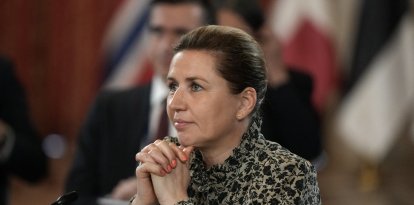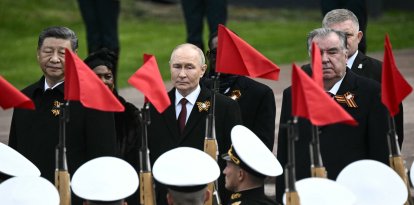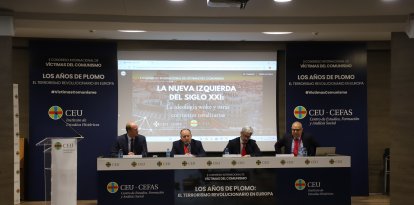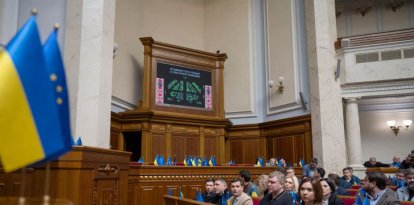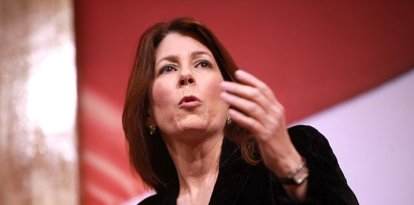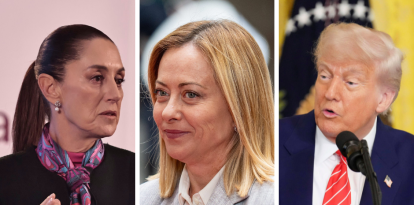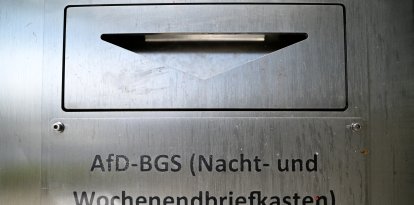Crisis in Guatemala: Tensions in Congress cause a delay in the inauguration of the president-elect
After months of judicial fights considered a Coup d'état, President Bernardo Arévalo is ready to take the oath, but first, legislative authorities must be elected.
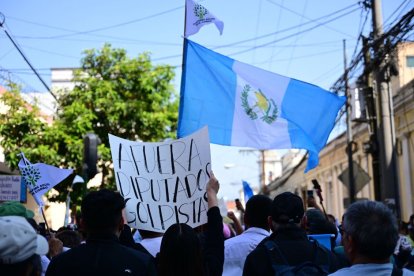
Simpatizantes de Bernardo Arévalo, presidente electo de Guatemala, muestran su apoyo en las calles mientas critican al Congreso. (AFP)
Guatemala is going through hours of tension after Congress could not finalize, so far, the start of the legislative session to elect its new authorities. This Sunday, the president-elect, progressive Bernardo Arévalo, was scheduled to assume power along with his running mate, Karin Herrera, a step that until now remains delayed due to this situation.
In theory, every four years, Guatemala elects authorities. In the legislative session, Congress determines its board of directors, including the president of the chamber, who participates in the entire Presidential Investiture Protocol Act. Usually, these steps are ceremonial and end up being carried out without significant problems, but on this occasion, things are different.
In addition to Arévalo and Herrara, the elected deputies of the Semilla Movement, the president's party, must also be sworn in today. However, the party has been immersed for months in various judicial battles by the Guatemalan Public Ministry and the electoral authorities that seek to suspend the political group alleging irregularities in the party's registration process.
These judicial obstacles are considered by Arévalo and part of the international community to be an attempted coup d'état by his political adversaries. However, the deputies of the Semilla Movement will be able to assume their functions as independents after the Constitutional Court, the highest Guatemalan judicial instance, did not protect Semilla by lifting a momentary suspension that the party has, according to local media República.
This delay in starting the legislative session, which occurs amid months of internal tensions in the country, caused hundreds of citizens to mobilize against the Public Ministry and Congress, generating confrontation with the forces of order.
Likewise, it also generated an aggressive emergence into Congress of the Semilla Movement deputies, who denounced irregularities in the way the election of the legislative authorities was being carried out.
Regarding all the controversy, the incoming president, Arévalo, spoke on his account on X (Twitter), asking Congress to respect the democratic process: "Deputies have the responsibility to respect the popular will expressed at the polls. An attempt is being made to violate democracy with illegalities, trifles and abuses of power. The Guatemalan people and the international community are watching."
Meanwhile, the European Union and the Organization of American States, along with representatives of other countries, also supported Arévalo and asked the corresponding authorities to respect the institutions in the Central American country.
"We call on Congress to fulfill its constitutional mandate to hand over power, as the Constitution demands today to President-elect Bernardo Arévalo," said OAS Secretary Luis Almagro.
Power vacuum?
In accordance with the Constitution of Guatemala, as of 4:00 p.m., Bernardo Arévalo and Karin Herrera, respectively, became president and vice president of the Guatemalan country.
However, since the president of Congress could not be sworn in, Guatemala currently does not have an official president or vice president.
This complicated legal vacuum, unprecedented for the country, increases uncertainty about what will happen in the next few hours with Bernardo Arévalo and his expected swearing-in.
RECOMMENDATION

